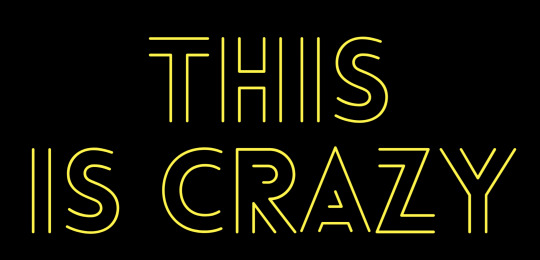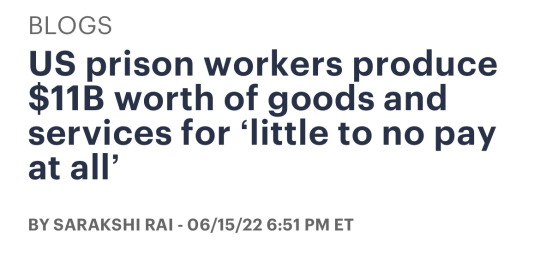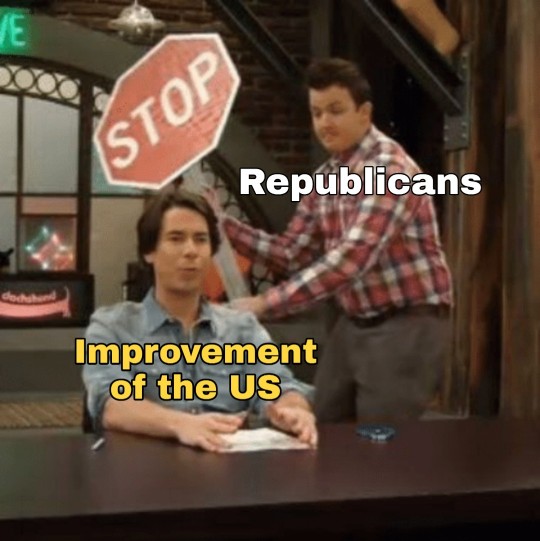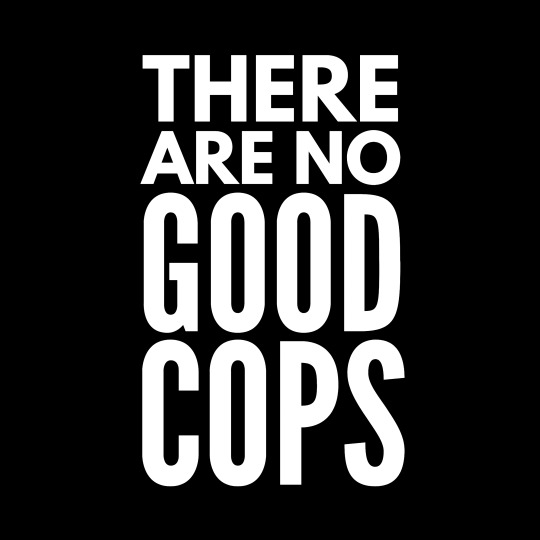#and criminal justice reform
Text
Apple Adds $25 Million to Racial Equity and Justice Initiative, Increasing Financial Commitment to over $200M since 2020
This week, Apple announced its Racial Equity and Justice Initiative (REJI), a long-term global effort to advance equity and expand opportunities for Black, Hispanic/Latinx, and Indigenous communities, has more than doubled its initial financial commitment to total more than $200 million over the last three years.
Since launching REJI in June 2020, Apple has supported education, economic…

View On WordPress
#Ahmaud Arbery#and criminal justice reform#Anti-Recidivism Coalition#Apple#Breonna Taylor#Defy Ventures#Delgado Community College#economic empowerment#Education#George Floyd#HBCUS#Hispanic-Serving Institutions#Houston Community College#HSIs#Los Angeles Community College District#My Brother’s Keeper Alliance (MBKA)#Obama Foundation#Racial Equity and Justice Initiative (REJI)#The Last Mile#Tim Cook#Vera Institute of Justice
16 notes
·
View notes
Text
It was a really, really good political news day today in the US (4/4/23)
For anyone who hasn't heard, not only did Trump get arrested, but also:
-We found out that the legal case against him in this prosecution (stormy daniels hush money case) is SIGNIFICANTLY stronger than people had speculated. Like, wow do they have receipts.
-In fact, the evidence was so entirely there that the new question on prime time news (well, at least on msnbc lol) is "Hey, why didn't the federal courts prosecute him for this already???)
-Trump FAILED UTTERLY in his attempts to rally mass protests and demands for "death and destruction" if he was arrested. There was no violence at the arrest at all, and as for Trump supporters? They failed to show up in any kind of numbers--reportedly only about a hundred people were protesting the arrest
-We (aka Judge Janet Protasiewicz) WON what is widely considered to be the most consequential election of 2023, a Wisconsin state supreme court election that handed control of the state supreme court to the left
-Because of that election win, it is now extremely likely that abortion will be legal in Wisconsin, and that Wisconsin won't be able to throw out electors in the 2024 presidential election
-ALSO bc of this, Wisconsin, the most gerrymandered state in the country, will probably get nonpartisan, accurate maps, which COULD FLIP THE HOUSE OF REPRESENTATIVES in 2024
-In Chicago, Brandon Johnson, union organizer and former teacher, won the election for mayor, in a decisive win progressives, esp for meaningful criminal justice reform and investment in mental health (whereas the other guy was campaigning on hiring hundreds of new cops and being super tough on crime)
#united states#us politics#wisconsin#supreme court#criminal justice reform#progressive politics#democrats#VOTING MATTERS#brandon johnson#janet protasiewicz#state supreme court#elections#gerrymandering#chicago#illinois#mayor#donald trump#trump indictment#trump arrest#alvin bragg#grand jury#manhattan#stormy daniels#good news#hope
25K notes
·
View notes
Text

the fix is in!!
#Supreme Court corruption#judicial integrity#legal ethics#accountability#justice system reform#transparency#judicial independence#public trust#legal oversight#ethical standards#judicial misconduct#Supreme Court accountability#judicial power#political thuggery#institutional limits#checks and balances#public pressure#media coverage#judicial reform#democratic principles#constitutional interpretation#judicial impartiality#judicial appointments#separation of powers#government accountability#supreme court ruling#presidential immunity case#Trump legal arguments#congressional impeachment power#criminal charges
141 notes
·
View notes
Text
I’ll never forget when I was arguing with a person in favor of total prison abolition and I asked them “what about violent offenders?” And they said “Well, in a world where prisons have been abolished, we’ll have leveled the playing field and everyone will have their basic needs met, and crime won’t be as much of an issue.” And then I was like “okay. But…no. Because rich people also rape and murder, so it isn’t just a poor person thing. So what will we do about that?” And I don’t think they answered me after that. I’m ashamed to say I continued to think that the problem was that I simply didn’t understand prison abolitionists enough and that their point was right in front of me, and it would click once I finally let myself understand it. It took me a long time to realize that if something is going to make sense, it needs to make sense. If you want to turn theory into Praxis (I’m using that word right don’t correct me I’ll vomit) everyone needs to be on board, which mean it all needs to click and it needs to click fast and fucking clear. You need to turn a complex idea into something both digestible and flexible enough to be expanded upon. Every time I ask a prison abolitionist what they actually intend to do about violent crime, I get directed to a summer reading list and a BreadTuber. It’s like a sleight-of-hand trick. Where’s the answer to my question. There it is. No wait, there it is. It’s under this cup. No it isn’t. “There’s theory that can explain this better than I can.” As if most theory isn’t just a collection of essays meant to be absorbed and discussed by academics, not the average skeptic. “Read this book.” And the book won’t even answer the question. The book tells you to go ask someone else. “Oh, watch this so-and-so, she totally explains it better than me.” Why can’t you explain it at all? Why did you even bring it up if you were going to point me to someone else to give me the basics that you should probably already know? Maybe I’m just one of those crazy people who thinks that some people need to be kept away from the public for everyone’s good. Maybe that just makes me insane. Maybe not believing that pervasive systemic misogyny could be solved with a UBI and a prayer circle makes me a bad guy. But it’s not like women’s safety is a priority anyway. It’s not like there is an objective claim to be made that re-releasing violent offenders or simply not locking them up is deadly.
#I’m sorry#there are just people out here who need punishment and to be contained and rehabilitation will not work#like I’m one of the more insane people who thinks that you can rehabilitate anyone if they want to change and learn from their behavior#ANYONE#but there are people out here who do not and will not ever want it#and those people shouldn’t get a pass because you read incomplete abolitionist theory once#and now you think that a UBI would solve everything#that’s the thing about most abolitionists that I’ve noticed#once you press them on the hard shit#they go#well there are some good books on the subject#there are some other creators#okay#and what have those other books and creators said?#Tee Noir once started off a video telling people not to ask her to defend her defense of prison abolition#they should just ‘Google it’ she said (or something like that)#now I don’t watch Tee Noir#gothra#feminism#social justice#prison abolition#criminal justice#prison reform#tw vomit
54 notes
·
View notes
Text
idk why people are having such a hard time wrapping their brains around the fact that not referring to people as prisoners and instead referring to them as people in prison or incarcerated people is a really really simple thing you can do to help combat decades of the systemic dehumanization of black, brown, and poor people. in the US and a lot of other countries around the world, the term prisoner has extremely negative connotations and stigma associated with it, and invokes a whole lot of bias and stereotypes about who is in prison and what for. the idea that people who are in prison are there because they are bad awful people is deeply ingrained in almost every aspect of US society and culture. prisons systemically dehumanize people and do everything to strip away people's autonomy, individuality, identity, freedom, and human rights.
the push for person first language when discussing those who are incarcerated literally comes from people who have been systemically dehumanized from these oppressive punitive systems. this is not an ahistorical uwu sjw don't say "autistic" say "person-with-autism" thing. there are decades, fuck even centuries of significant, deeply racialized and oppressive political and historical context you have to take into account.
so please don't feed into this dehumanization by referring to people as objects in this extremely oppressive, racist, classist, harmful punitive system. use person first language y'all, it's not that fucking hard.
here's some articles if people actually care enough to educate themseves
The language of incarceration
People First: The Use and Impact of Criminal Justice Labels in Media Coverage
The Language Project
Forget labels like ex-con and felon, realize that words matter and learn how to humanize language
#mass incarceration#criminal justice reform#like i really don't understand what all the fuss is about and why people are getting so angry about my previous post#the word prisoner DOES have MANY negative and dehumaizing connotations#so like?? don't call people that#it's not fucking rocket science#jesus christ
63 notes
·
View notes
Text
There is a fundamental contradiction and injustice in the fact that Donald J Trump, convicted felon, can still run for President, but an estimated 4.6 million Americans as of 2022 can't even vote due to felony convictions.
32 notes
·
View notes
Text


Hey Siri, define slavery
#politics#us politics#abolish prisons#prison industrial complex#current events#criminal justice system#capitalism#prison reform
2K notes
·
View notes
Text
Unethical Executions in April
Micheal Smith is being executed in Alabama despite having an intellectual disability that would disqualify him from the death penalty in any other state. The only reason he is still being executed is because of a few confusing technicalities in Oklahoma law.
Petitions Here:
Letter Writing Campaigns for oklahoma residents here:
Missouri is slated to execute Brian Dorsey despite his claims of ineffective counsel and the fact that he is picture of remorse and rehabilitation: he turned himself over to the police and pled guilty, has had a flawless prison record, currently resides in the honor ward while working as a prison barber (a highly coveted job only given to trust worthy inmates), and has about 60 prison staff members advocating for the commutation of his sentence.
Petitions Here:
Letter Writing Campaigns and other actions for Missouri Residents here:
https://www.archstl.org/missouri-bishops-others-request-clemency-for-brian-dorsey-first-inmate-to-be-executed-this-year-9478
#missouri#oklahoma#oklahoma politics#missouri politics#death penalty#end the death penalty#signal boost#anarchism#anarchy#current events#criminal justice#criminal justice reform#progressive politics#progressivism#leftist#leftism#leftist politics#progressive#wrongful execution#execution tw#Execution#Oklahoma execution#Missouri execution#Micheal Smith#Brian Dorsey#Save Micheal Smith#Save Brian Dorsey#true crime#Executions#Stop executions
28 notes
·
View notes
Text
🇮🇱⚔️🇵🇸 🚀🏥💥 🚨
AL-SHIFA MEDICAL COMPLEX BEFORE AND AFTER ISRAELI OCCUPATION FORCES DESTROYED THE HOSPITAL
📹 Footage published detailing the reception for the opening of Al-Shifa Medical Complex, in the Al-Rimal neighborhood of Gaza City, back-to-back with footage from after the withdrawal of the Israeli occupation army on Monday.
Al-Shifa Medical Complex was once the largest and most well equipped hospital in the entire Gaza Strip, with advanced surgical capabilities and rehabilitation centers.
Today, the entire structure of the main building barely stands, while satellite buildings are completely destroyed, after the withdrawal of the Zionist army, leaving the hospital grounds littered with the rotting corpses of dozens, if not hundreds, of Palestinian civilians killed during the occupation's siege, bombardment and ground operations targeting Al-Shifa Hospital and its grounds.
#source
@WorkerSolidarityNews
#gaza#gaza strip#gaza news#free gaza#gaza genocide#genocide in gaza#palestine#palestine news#palestinians#israeli war crimes#israeli genocide#war crimes#criminal justice reform#israel#israeli occupation forces#israeli occupation#al shifa hospital#al shifa medical complex#free palestine#war#israel palestine conflict#politics#news#geopolitics#world news#global news#international news#breaking news#current events#genocide
30 notes
·
View notes
Text
The Republican Party is at war with the American people.
#republican assholes#three strikes#criminal justice#courts target the poor#justice system targets minorities#court reform#legal system reform#Louisiana
23 notes
·
View notes
Note
How have superhero stories grappled with the more grounded depictions of fighting crime? Which is to say, someone with much higher power than those they’re fighting breaking bones and causing harm in real circumstances?
It’s like there’s a disconnect between some of the more “straight” stories of someone who is seemingly nice on every level as a hero but goes out during their nights to beat the hell out of people with their alter ego and power , and ofc how that image links with punitive justice / brutality status quo of justice enforcement
On the worst end, you get Rorschach’s (part of the point of the character I know) who throw suspected criminals down elevator shafts, and on the best end you get spidey or flash harmlessly webbing guys up or tying them up before they can hurt anyone
Ideally you’d get heroes going out to defend others lives and doing so in as non harmful ways as possible and incapacitating without violence, and addressing the root issues of criminals at the same time (inspired by your Batman post) while putting thr buck of energy towards the real masters of evil propagating the system
One of my favorite recent stories was the Zdarsky daredevil where it shows how easily a fatal accident can happen in a normal fight, and how dangerous any kind of violence is, but I’m not sure how much of an outlier / regular that is.
Maybe vague, but what I’m getting at is how, if at all, has this trend changed in superheroes over the years? And how successfully have they grappled with the “Ka pow” solution and what would actually come of it?
I've talked about this a bit in the past with regards to Batman (although I think the Punisher is the better case study) and vigilantism in general.
I think it's genuinely important that superheroes avoid the trap of "Spidercop" et al. (the Playstation Spider-Man games really pissed me off on this topic, as amazing as they are in other aspects) and grapple with what it means to be a vigilante in society, both the good and the bad of it.
That being said, though, I think this is basically a solved issue in superhero comics and has been practically since the beginning.
Building off their initial focus on organized crime coming out of the pulps - because pace to my abolitionist and restorative justice brethren, but that shit does not work on mobsters - superhero comics pivoted by creating the supervillain.
While many supervillains get their start as exaggerations of the organized crime figure, and there are some great punch-clock villains out there, most supervillains exist outside of the framework of criminal justice reform because their motivations are usually sui generis and their criminal activities are so baroque and often have more to do with personal vendettas and dominance displays than anything that actually motivates real-world violent crime.
22 notes
·
View notes
Text

#us politics#memes#shitpost#gop#conservatives#republicans#conservatives be like#republicans be like#progressivism#societal advancements#societal progress#prison reform#education reform#criminal justice reform#police reform#healthcare reform#climate reform#tv shows#icarly
148 notes
·
View notes
Text
"Expanding freedom and opportunity to millions
Over a decade ago, researchers, policymakers, journalists, and individuals and family members harmed by prisons and jails helped define American mass incarceration as one of the fundamental policy challenges of our time. In the years since, policymakers and voters in red, blue, and purple jurisdictions have advanced criminal justice reforms that safely reduced prison and jail populations, expanding freedom and opportunities to tens of millions of Americans.
After nearly forty years of uninterrupted prison population growth, our collective awareness of the costs of mass incarceration has fundamentally shifted–and our sustained efforts to turn the tide have yielded meaningful results.

Since its peak in 2009, the number of people in prison has declined by 24 percent (see figure 1). The total number of people incarcerated has dropped 21 percent since the 2008 peak of almost 2.4 million people, representing over 500,000 fewer people behind bars in 2022. Absent reforms, more than 40 million more people would have been admitted to prison and jail over this period. The number of people on probation and parole supervision has also dropped 27 percent since its peak in 2007, allowing many more people to live their lives free from onerous conditions that impede thriving and, too often, channel them back into incarceration for simple rule violations.1
"Absent reforms, more than 40 million more people would have been admitted to prison and jail over this period. [2008 to 2022]"
Make no mistake: mass incarceration and the racial and economic disparities it drives continue to shape America for the worse. The U.S. locks up more people per capita and imposes longer sentences than most other countries. Nearly 1-in-2 adults in the U.S. have an immediate family member that has been incarcerated, with lifelong, often multigenerational, consequences for family members’ health and financial stability. Yet the past decade of successful reforms demonstrate that we can and must continue to reduce incarceration. These expansions of freedom and justice–and the millions of people they have impacted–help define what is at stake as public safety has reemerged as a dominant theme in American public and political conversation.
...We have a robust body of research built over decades showing that jail stays and long prison sentences do not reduce crime rates. And fortunately, we have an extensive and expanding body of research on what does work to reduce crime and keep communities safe. The evidence is clear: our focus must be on continuing and accelerating reductions in incarceration.
Black imprisonment rate drops by nearly half
People directly impacted by incarceration and other leaders in the criminal justice reform movement have persistently called out how the unequal application of policies such as bail, sentencing, and parole (among others) drive massive racial disparities in incarceration. The concerted effort to reduce our prison population has had the most impact on the group that paid the greatest price during the rise of mass incarceration: Black people, and particularly Black men.

The Black imprisonment rate has declined by nearly 50 percent since the country’s peak imprisonment rate in 2008 (see figure 2). And between 1999 and 2019, the Black male incarceration rate dropped by 44 percent, and notable declines in Black male incarceration rates were seen in all 50 states. For Black men, the lifetime risk of incarceration declined by nearly half from 1999 to 2019—from 1 in 3 Black men imprisoned in their lifetime to 1 in 5.
While still unacceptably high, this reduction in incarceration rates means that Black men are now more likely to graduate college than go to prison, a flip from a decade ago. This change will help disrupt the cycle of incarceration and poverty for generations to come.
Expanding safety and justice together
The past decade-plus of incarceration declines were accompanied by an increase in public safety. From 2009-2022, 45 states saw reductions in crime rates, while imprisoning fewer people, with crime falling faster in states that reduced imprisonment than in states that increased it.
This is in keeping with the extensive body of research showing that incarceration is among the least effective and most expensive means to advance safety. Our extremely long sentences don’t deter or prevent crime. In fact, incarcerating people can increase the likelihood people will return to jail or prison in the future. Public safety and a more fair and just criminal system are not in conflict.
Strong and widespread support for reform
We have also seen dramatic progress on the public opinion front, with a clear understanding from voters that the criminal justice system needs more reform, not less. Recent polling shows that by a nearly 2 to 1 margin respondents prefer addressing social and economic problems over strengthening law enforcement to reduce crime. [In simpler terms: people are twice as likely to prefer non-law-enforcement solutions to crimes.]
Nearly nine-in-ten Black adults say policing, the judicial process, and the prison system need major changes for Black people to be treated fairly. Seventy percent of all voters (see figure 3) and 80 percent of Black voters believe it’s important to reduce the number of people in jail and prison. Eighty percent of all voters, including nearly three-fourths of Republican voters, support criminal justice reforms.

This is not only a blue state phenomenon. Recent polling in Mississippi indicates strong support across the political spectrum for bold policies that reduce incarceration. For example, according to polling from last month, 72 percent of Mississippians, including majorities from both parties, believe it is important to reduce the number of people in prison (see figure 4). Perhaps most tellingly, across the country victims of crime also support further reforms to our criminal justice system over solutions that rely on jail stays and harsh prison sentences...
We are at an inflection point: we can continue to rely on the failed mass incarceration tactics of the past, or chart a new path that takes safety seriously by continuing to reform our broken criminal justice system and strengthening families and communities."
-via FWD.us, May 15, 2024
#REFORMS HAVE ALREADY SAVED OVER 40 MILLION PEOPLE FROM ENTERING JAILS AND PRISONS#THAT ALONE IS A MASSIVE MASSIVE ACCOMPLISHMENT#never doubt that we CAN make a difference#no matter how long it takes#we are going to build a better and freer world#whether those in power want us to or not#mass incarceration#prison#prison system#racism#united states#us politics#systemic racism#incarcerated people#incarceration#criminal justice#criminal justice reform#crime rate#prison industrial complex#good news#hope
338 notes
·
View notes
Text


#police brutality#defund the police#systemic racism#police corruption#criminal justice reform#abolish the police#black lives matter#police accountability#cop city#police misconduct#law enforcement reform#police violence#police state#anti-police sentiment
50 notes
·
View notes
Note
Sup bitches! I’m in love with a very sweet, smart, hardworking man - who also finished a 20-year prison sentence three years ago. He has a great, well-paying job in a small business, his credit is blossoming, and he is beloved my all; by all accounts a success story. But of course, there are barriers, namely finding a place to rent. I have no such barriers, but I know most places do background checks on all potential occupants. What are our options?
Legal discrimination against ex-convicts is one of the blackest stains on our country. You and your partner have our sympathy and support! He has done his time and by rights should be entitled to the full privileges of any other citizen. And yet.
Remember that we are NOT legal professionals, and so we can't offer legal advice. What I CAN tell you is that if you are the only person on the lease, you will be the only one subject to a background check. Additionally, if you submit his criminal record up-front, in a personal letter to a private landlord (rather than a giant rental corporation), they're more likely to be reasonable about your case.
For more practical advice and to understand your partner's rights, risks, and options as an ex-convict, we recommend reading "The New Jim Crow." It talks about the racial component of the criminal justice system, but the discriminatory aspects of post-prison life are broadly applicable.
The New Jim Crow, by Michelle Alexander: A Bitchtastic Book Review
If this helped you out, join our Patreon!
46 notes
·
View notes
Text
Frank Vyan Walton at Daily Kos:
Also, Trump said some crazy shit about “doing more for Black people than Lincoln.”
After "Morning Joe" co-host Mike Brezinski reported the former president told the crowd at the NRA convention in Dallas, “And honestly, there’s been no president since Abraham Lincoln and perhaps in a certain way, including Abraham Lincoln, but there’s been no president since Abraham Lincoln that has done more for the Black individual in this country than President Donald J. Trump,” before adding, "There’s been nobody. Not even close.”
So that’s a thing.
=
Donald Trump’s claim that he’s done more for Black people than other Presidents is laughably inane.
#Donald Trump#Black Americans#2024 Presidential Election#2024 Election#First Step Act#Criminal Justice Reform#HBCUs#Joe Biden
10 notes
·
View notes